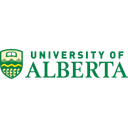Discover the economic dynamics of the Arctic region in this comprehensive course on circumpolar economies.
Discover the economic dynamics of the Arctic region in this comprehensive course on circumpolar economies.
Dive into the fascinating world of Arctic economies with this comprehensive course offered by the University of Alberta. Over three weeks, you'll explore the diverse economic landscapes of Indigenous, North American, Russian, and Nordic Arctic communities. The course examines how these regions are adapting to rapid globalization while maintaining their unique cultural identities and traditional ways of life. You'll gain insights into the historical context, current challenges, and future prospects of Arctic economies, with a focus on sustainable development and the balance between local needs and global influences. Through a series of engaging modules, you'll learn about the geography, culture, and socio-economic histories of various Arctic regions, as well as the impact of climate change and resource exploitation on these delicate ecosystems. This course is ideal for anyone interested in understanding the complex interplay between economic development, environmental conservation, and cultural preservation in one of the world's most unique and rapidly changing regions.
4.6
(74 ratings)
2,667 already enrolled
Instructors:
English
What you'll learn
Understand the economic past, present and future of the circumpolar arctic.
Recognize the opportunities and challenges of economic development in the arctic including local and global drivers.
Understand the social, cultural, and political context of local, national and circumpolar arctic economies.
Gain insights into the impact of globalization on Arctic communities.
Explore the history of Arctic economies and their connection to the global market.
Learn about different modes of Arctic governance and sustainability strategies.
Skills you'll gain
This course includes:
190 Minutes PreRecorded video
5 quizzes
Access on Mobile, Tablet, Desktop
FullTime access
Shareable certificate
Closed caption
Get a Completion Certificate
Share your certificate with prospective employers and your professional network on LinkedIn.
Created by
Provided by

Top companies offer this course to their employees
Top companies provide this course to enhance their employees' skills, ensuring they excel in handling complex projects and drive organizational success.





There are 4 modules in this course
This 3-week MOOC, a collaboration between the University of Alberta and UiT The Arctic University of Norway, explores the challenges faced by Arctic communities in the modern world. The course covers the diverse histories and roles of Arctic communities in local, regional, and global economies. It examines how these communities are adapting to rapid globalization while striving to maintain their cultural traditions and ways of life. Students will investigate the unique socio-economic histories of Indigenous, North American, Russian, and Nordic Arctic regions, and learn about the strategies these communities are employing to ensure their survival and sustainable development in the face of climate change and increasing global influences.
Globalization and Sustainable Arctic Economies
Module 1 · 2 Hours to complete
Local and Regional Economies Connected with the Outside World
Module 2 · 1 Hours to complete
History of Globalization in the Arctic
Module 3 · 1 Hours to complete
Final Thoughts
Module 4 · 11 Minutes to complete
Fee Structure
Payment options
Financial Aid
Instructors
Expert in Resource Economics and Environmental Sociology
Brenda Parlee was born and raised in northern Ontario, where the landscape and political economy significantly shaped her understanding of social, economic, and environmental issues critical to her research and teaching. She holds a B.A. from the University of Guelph (1995), an M.E.S. in Environmental Studies from the University of Waterloo (1998), and a PhD in Natural Resources and Environmental Management from the University of Manitoba (2005). Currently, she is a Professor in the Department of Resource Economics and Environmental Sociology in the Faculty of Agricultural, Life & Environmental Sciences. With over 20 years of experience working in northern Canada, she has engaged in various collaborative and community-based research projects addressing social and ecological changes both domestically and internationally.
Professor
Rasmus Gjedssø Bertelsen is a Professor of Northern Studies and holds the Barents Chair in Politics at UiT The Arctic University of Norway in Tromsø. A Danish political scientist who was raised in Reykjavik, Iceland, he has a strong personal and professional commitment to the North Atlantic and the Arctic. His research and teaching focus on the Arctic's historical, current, and potential future role in global political, economic, security, and technological systems.
Testimonials
Testimonials and success stories are a testament to the quality of this program and its impact on your career and learning journey. Be the first to help others make an informed decision by sharing your review of the course.
Frequently asked questions
Below are some of the most commonly asked questions about this course. We aim to provide clear and concise answers to help you better understand the course content, structure, and any other relevant information. If you have any additional questions or if your question is not listed here, please don't hesitate to reach out to our support team for further assistance.





